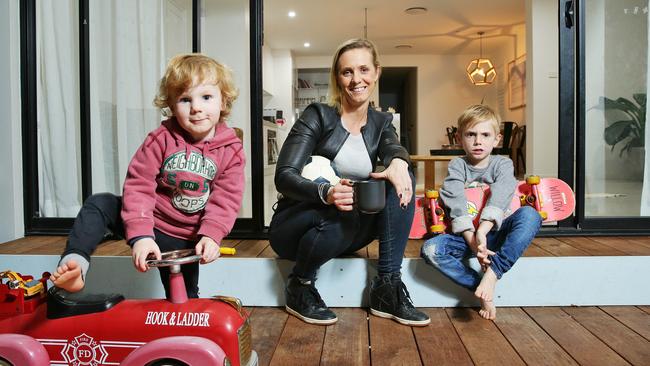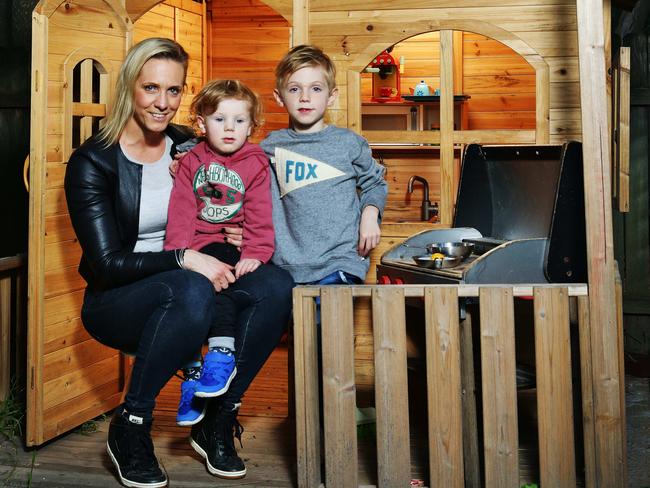Digital devices leading to kids failing to make memories, expert Dr Kristy Goodwin says
A GROWING number of children could be suffering “digital dementia” as teachers report primary school children being unable to memorise their times tables or basic maths, according to a leading child learning researcher.

News
Don't miss out on the headlines from News. Followed categories will be added to My News.
A GROWING number of children could be suffering “digital dementia” as teachers report primary school children being unable to memorise their times tables or basic maths, according to a leading child learning researcher.
Dr Kristy Goodwin said children are also at risk of shorter attention spans and impaired language skills when they enter school because of the pervasive impact of digital technology such as smart phones and tablets.
“Children are simply offloading so many things to their devices that they’re not developing their memory muscle,” Dr Goodwin said.
“It’s one of the biggest complaints I have from teachers when I travel around the country that memory-making skills have completely changed.”

She said the term “digital dementia” was coined after overseas research likened the effect to someone suffering head injuries or psychiatric illness.
“Another concern raised by school teachers is a drop in expressive and reflective language skills,” she said.
“This is anecdotal evidence but it’s believed some children are not getting that ping-pong interaction with a human, because they are spending a lot more solitary time with a screen.”
She said time-poor parents might also be contributing to the problem.
Dr Goodwin, who has two boys, Taj, 5, and Billy, 2, said digital technology was obviously here to stay and had many positive educational values, so it was a matter of balancing children’s activities.
“I’m here in the digital trenches with other parents,” she said. “There’s a lot of techno-guilt about it, we parents don’t seem to discuss it like you would a fussy eater.
“Society is conducting an experiment here as we don’t know the long-term effects but we do know what kids’ basic developmental needs are, so I’ve tried to help parents make informed choices.”
Dr Goodwin’s book Raising Your Child In A Digital World, which will be released next week, recommends parents use screens sparingly with the under twos, and where possible use the technology together with your child, and to balance screen time with “green time” outdoors.
“There’s ample evidence that confirms co-viewing is beneficial for children,” she said. The “million dollar” question frequently asked — how much screen time is right — can’t be answered easily, Dr Goodwin said, arguing that government guidelines are “unrealistic”.



